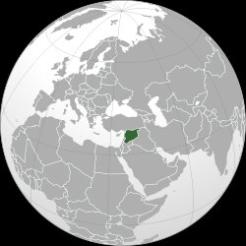The Disasters Emergency Committee is still not convinced that the humanitarian crisis in Syria meets all of its criteria for launching an appeal, even though nine of its 14 member charities have launched their own appeals.
The latest reports out of Syria suggest that more than 700,000 people, half of them children, have fled to neighbouring countries, with around 5,000 more leaving every day; two million are internally displaced, and 60,000 people have died.
DEC spokesman Brendan Paddy told civilsociety.co.uk today that the Committee is still in discussions with its partners about the prospects for an appeal, and whether the situation meets the three appeal criteria.
He said there is little doubt that the first criterion, as to the scale and urgency of the disaster, is met. The numbers of people affected are high enough to warrant taking action, he said.
The answer to the second question - are member agencies in a position to provide effective and swift humanitarian assistance? – is less clear-cut. “In the surrounding countries that’s a given,” he said. “A number of agencies are already appealing largely or wholly to fund work with refugees.
“But if we were to do an appeal, there would be an expectation from the public that we were able to provide a substantial amount of assistance within Syria. Now we do feel we are beginning to reach that point but providing assistance in Syria is not a trivial matter. Operational access and security are very difficult, we do have member agencies providing substantial assistance both in government and rebel-controlled areas but parts of that story are very difficult to tell for various reasons, because going into too much detail about what we are doing and where and how, could be compromising, indeed dangerous.
“So that second part is somewhat more difficult than the first.”
Not sure of public support
But the third criterion, which is whether there is likely to be a significant public response, is the hardest to be sure of.
“This is often the sticking point, and often the one we find ourselves discussing with our partners, particularly the broadcasters,” Paddy said.
“In this situation, Syria is obviously very much in the public eye, but it does ebb and flow. It’s also been going on for some time and isn’t always the top of the news agenda or even top of the international news agenda. And often when it does get attention it’s often about the machinations of the Security Council, the positioning of Western governments, or military activity. It’s not necessarily about the humanitarian crisis.”
He said that the DEC’s experience over many years is that when the cause of a humanitarian crisis is conflict, it can be hard to get potential donors to distinguish between the conflict, the politics, and the humanitarian need.
“We have to be convinced people will respond on the basis of the humanitarian crisis rather than simply seeing the politics and the fighting, which tends to turn people away from wanting to support an appeal.”
He added that launching a DEC appeal is no small thing, for the members, the secretariat, the broadcasters and other partners. “We don’t set fundraising targets but there is an expectation that when we run an appeal it will raise a very substantial sum and receive the support of a very wide cross-section of the British public.” Thus, there is an immediate risk that it doesn’t deliver what was hoped for, and longer-term the risk is of eroding the support of the public and partners.
Paddy said the DEC is in constant email and telephone contact with member agencies about Syria. If an appeal looks probable then a teleconference would be called to make that decision and then the support of partners would be formally requested.
“We haven’t reached that point yet,” he said.

| Want access to all civilsociety.co.uk content?Subscribers gain access to all expert advice, analysis, surveys, special reports and the full archive of content from as little as £43.20 per year. Find out more... |









